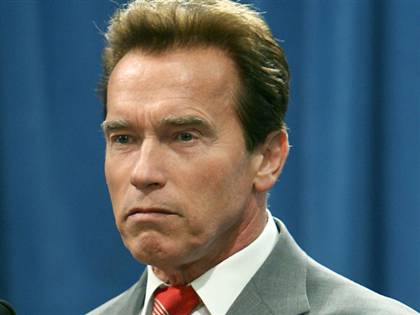California budget crisis: it's worse than you think

Last Friday, Gov. Schwarzenegger detailed the brutal budget cuts coming, saying the state doesn’t have the money, and that the current system is broken and must be repaired. Further, he said he will not sign a budget that does not contain substantial pension, budget, and tax reform.
He singled out CalPERS, the public pension system, as needing reform. By law, CalPERS can force the state to make up any shortfall, and for the coming fiscal year, that will amount to almost $7 billion.
Among the cuts Schwarzenegger proposes is to completely eliminate (not just cut back) welfare, cutting pay for state workers even further (many already have furlough days, which essentially are pay cuts), eliminating subsidized child care for all children but pre-schoolers, cut in-home care for the elderly and disabled, and more.
He does not favor tax increases, preferring to try to stimulate job growth instead. Given the current dysfunctional system where tax increases must pass by a two-thirds majority, he probably couldn’t get them passed even if he wanted to.
How bad is California’s financial situation?
Well, as of May 11, 2010, California was in the top ten for highest government default probabilities in the world, just below Latvia and ahead of Sicily, and had a 20% probability of defaulting. The spread on California Credit Default Swaps (CDS) was at 254, which is going into Red Alert territory. CDS are a form of semi-insurance used by deep pocket speculators and hedgers to essentially make bets on the probability of an entity defaulting. The higher the spread, the more the implied risk is. These spreads can influence interest rates for bonds, so this is not theoretical at all.
Let me explain. Wikipedia gives an example of Risky Corp. having a spread of 50, implying this is high. Yet the California spread of 254 means someone buying $10 million of default protection on California debt for five years would have to pay $254,000 in premiums each year to the seller. With non-risky debt, this might be just $25,000 a year.
So, if things are so dire, then California should just default, file for bankruptcy, and let the courts sort it out, right? Wrong. Under federal law, states are not allowed to file for bankruptcy. We are in uncharted waters here.
So, what happens when California defaults?
Maybe it could be an orderly process like an actual bankruptcy, but absent any laws, it would probably be chaotic and contentious. The last time any state defaulted was in the 1840’s, so that’s hardly any guide. Plus, California is so huge that a default would be very public and probably a serious shock to the markets as well and could trigger other state defaults, like New York and Illinois.
The California Budget Project has a wealth of information in their "Searching for Balance" report on the upcoming 2010-2011 budget that helps explain where California income, expenses, and the shortfall come from. Here’s some highlights (numbers are rounded).
Expenses: Education is nearly 50% of the budget, Health and Human Services 25%, Corrections and Rehab 9%. That’s right, education is by far the biggest budget item.
Income: Personal income tax accounts for 52% of total revenue, sales and use tax is 28%, corporation tax just 11%. In fact, the share of corporate income paid in taxes has fallen by nearly half since 1981.
Causes of shortfall: Previously projected shortfall is 36.5%, “solutions” lost to court decisions / costs mandated by courts 25.9%, lower than anticipated revenues 18%.
The California budget assumes $6.9 billion in federal funds. If the entire amount is not received, then an all-or-nothing trigger will force several billion in further cuts. So far, the federal government has only guaranteed about $3 billion.
The governor said on Friday, “California has no low-hanging fruit left.” All the easy budget cuts, and many hard ones, have already been made. What’s coming will be Draconian. Hopefully, badly needed reform will emerge out of the coming difficult times for California.





